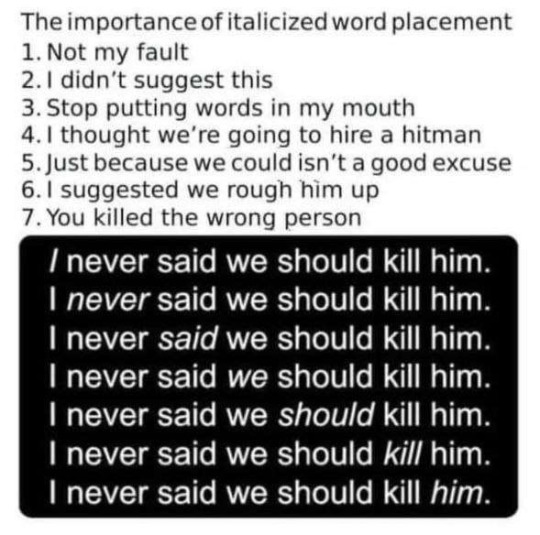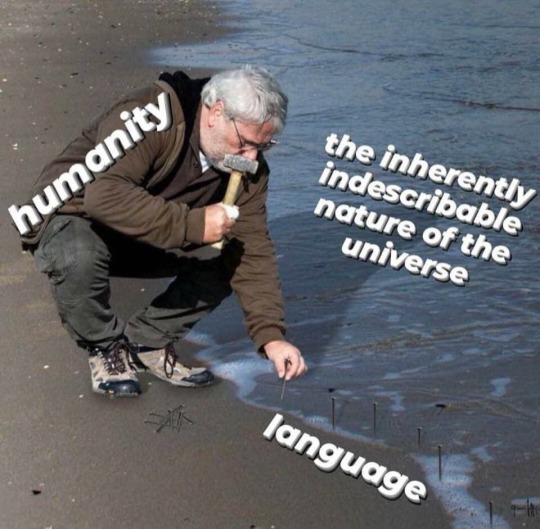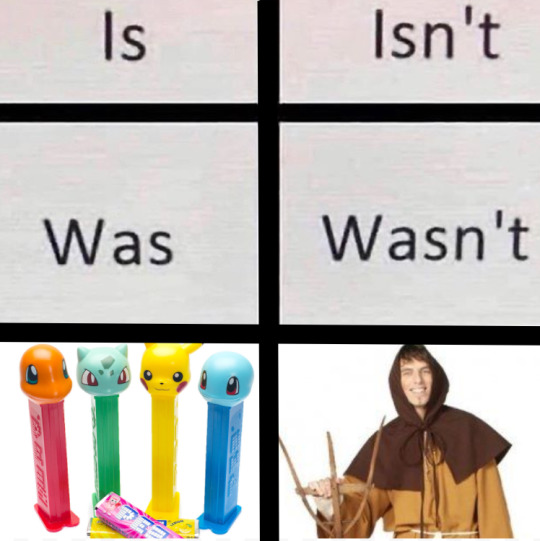Interesting and educational facts about the English language, and occasional rants on the misuse thereof. Also some bits on writing. And possible llama incursions. You never know.
Don't wanna be here? Send us removal request.
Text
40 English words you never thought existed
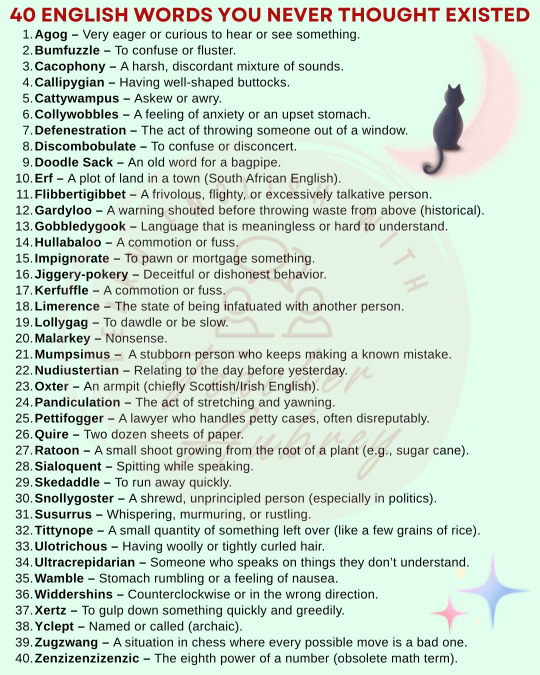
Weird, huh?
#many of these words aren't particularly obscure because they're still in regular use#but still a fun quiz#english vocabulary
9K notes
·
View notes
Photo

trying to explain english to an italian
81K notes
·
View notes
Text
Local man fond of linguistic garden path sentences friends to hearing his boring puns.
11K notes
·
View notes
Text

--Written Chinese vs English--
[ID: A comic titled "Evolution of Written Chinese vs English". On the left, emperor Qin Shi Huang holds up a scroll and angrily points an ink brush at the viewer and shouts, "There should not be seven different ways to write 'horse'. Starting today everyone will use the same characters-- or else!" On the right, William Shakespeare laughs gleefully while holding a skull and quill and exclaims, "The first rule of English is to have fun and to thine own self be true!" Every word uses a non-standard spelling. Below the cut are full versions of the the panels and a blank version of the Chinese one. End ID]
I'm fascinated by the evolution of chinese and english "spelling." I grew up on hard-to-read Ye Olde English, and assumed all languages were like that. Imagine my shock when I discovered the chinese language had been standardised since 221BC, and I can read words written in the Han Dynasty.
full versions:
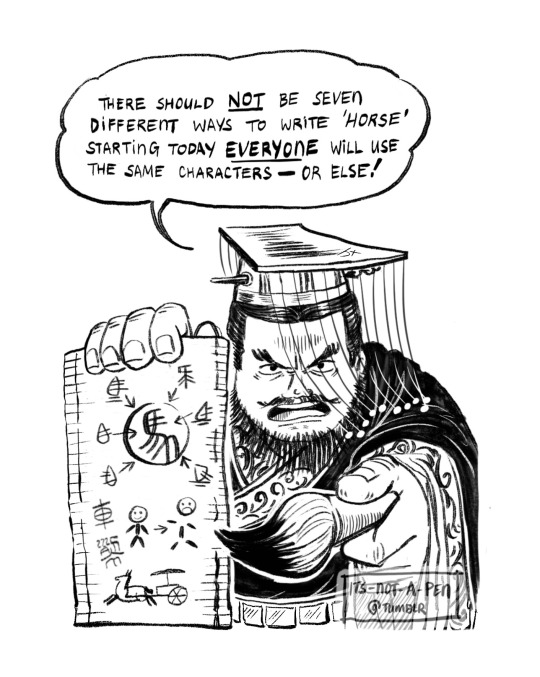
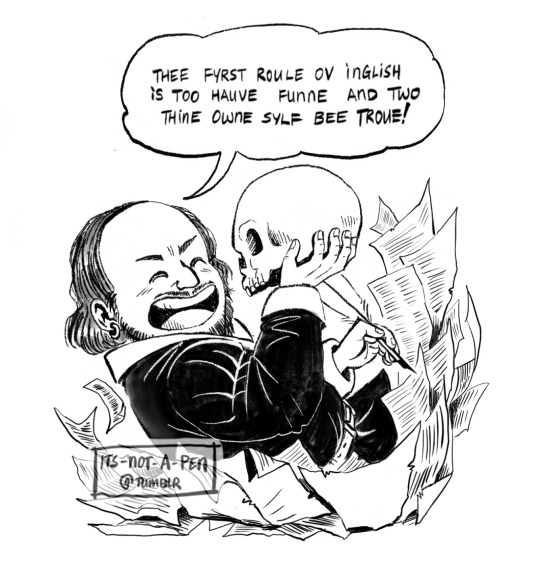
notes under the cut
For much of it's history, the English language played it fast and loose with spelling. (No one can spell things wrong if no one can spell things right!) Standardisation only began in the late 15th century as the use of the printing press spread across Europe.
I thought the best person to show this carefree attitude was the Bard himself; Willy Shakes. We have six surviving examples of Shakespeare's signature, and none of them are spelled the same way twice.
In comparison, Qin Shi Huang, the first emperor of China, standardised the writing system as early as 221 BC. He had conquered the six warring states and decided to do away with their writing systems. This made the administration of a centralised government easier, and it served as a demonstration of his absolute authority. The writing on the book* is "horse", and "torn apart by carriage".
**That scroll he's holding is actually called a book in Chinese, it is made up of bamboo slips, like a big sushi mat!
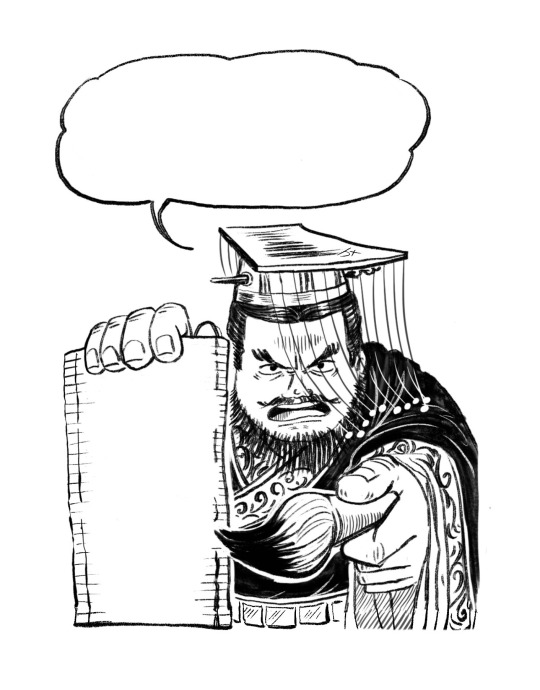
All designs are available on redbubble: I thought it would be fun to include a blank version of qin shi huang, so you can write stuff on him.
5K notes
·
View notes
Text
It's true! "Whispered" means that the words are unvoiced and formed using air pushed through the mouth without engaging the vocal cords. "Said softly" refers to voiced words, produced through vibration of the vocal cords but spoken at a low volume. They do mean different things!
I know adverbs are controversial, but "said softly" means something different than "whispered" and this is the hill I will die on.
71K notes
·
View notes
Text

you know when somebody says this that they mean either a short amount of time, a long amount of time, or maybe just neither
104K notes
·
View notes
Text
Reblogging here mostly for the derivation of the color names, BUT this is also right in my wheelhouse because I have a mauve-trimmed garment in my vintage clothing collection! It's a dark taupe silk dress with mauve buttons and trim, c. early-to-mid 1860s (I don't have provenance on this one, so dates are best-guess). It has a gorgeous cascading pleated bow down the back that I... apparently have zero photos of.
Here it is out of its storage box when I was setting up last year's vintage clothing exhibit (sorry the picture's a little crooked; it's the only one I could find quickly):

It's faded in some places, but the color is pretty vibrant in a few spots. Here's the sleeve cuff, which is pretty close in color to that swatch above:

The dress had been smashed pretty badly in (non-archival) storage before it came to me, so it has some acid burning and age brittleness that have kept me from trying to smooth it all out properly, but I imagine if those bright purple ruffles were in their original fluffy gathered form instead of crushed down, they would have looked absolutely effervescent.
It occurs to me that I wrote mauve here yesterday when I meant maroon. Hope this helps.
5K notes
·
View notes
Text
I was going to write a massive infodump on using archaic pronouns correctly, but this thread does it more completely and already exists, so: Pronoun tutorial be upon ye!
NO ONE knows how to use thou/thee/thy/thine and i need to see that change if ur going to keep making “talking like a medieval peasant” jokes. /lh
They play the same roles as I/me/my/mine. In modern english, we use “you” for both the subject and the direct object/object of preposition/etc, so it’s difficult to compare “thou” to “you”.
So the trick is this: if you are trying to turn something Olde, first turn every “you” into first-person and then replace it like so:
“I” → “thou”
“Me” → “thee”
“My” → “thy”
“Mine” → “thine”
Let’s suppose we had the sentences “You have a cow. He gave it to you. It is your cow. The cow is yours”.
We could first imagine it in the first person-
“I have a cow. He gave it to me. It is my cow. The cow is mine”.
And then replace it-
“Thou hast a cow. He gave it to thee. It is thy cow. The cow is thine.”
#archaic english#early modern english#pronouns#one advantage of growing up with the king james bible is I don't even have to think about these rules to write/speak with archaic pronouns#also gave me a massive advantage when I started reading shakespeare
66K notes
·
View notes
Text
I love how this thread started with a clever setup for a pun* that every subsequent poster utterly ignored. Oh, Tumblr.
* Explanation of the original joke: The Ship of Theseus is a thought experiment that describes a wooden ship in which, over time, every single board is gradually replaced by a new board. When none of the original boards remain, can it be called the same ship or not? By describing a student replacing all the words in an essay with synonyms, the original post sets up a paradox similar to the Ship of Theseus, but names it the Ship of Thesaurus because a thesaurus is a book that lists synonyms.
When a student copies an essay online instead of writing it and then painstakingly changes every word to a synonym until the text no longer makes any sense...
call that the Ship of Thesaurus
84K notes
·
View notes
Text
I’m so sorry but in the nicest way possible do yall actually read books or just read words??? Cause I’ve been seeing that trend of people not understanding how “snarled” and “eyes darkened” and “eyes softened” etc. was used in a book and like…
Genuinely, do yall just not have imagination?? Or not understand figurative language??? Also eyes do literally darken and soften have you not lived a life??? How do you read with no imagination? Is this how you get through so many books in one month - you simply don’t take the time the understand the words as they are read?
106K notes
·
View notes
Text
site that you can type in the definition of a word and get the word
site for when you can only remember part of a word/its definition
site that gives you words that rhyme with a word
site that gives you synonyms and antonyms
1M notes
·
View notes
Text
settle this for me once and for all
is “chai” a TYPE of tea??! bc in Hindi/Urdu, the word chai just means tea
182K notes
·
View notes

